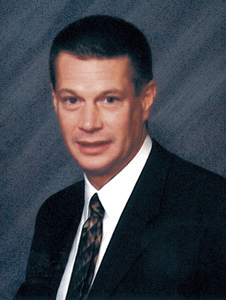WHAT CAN YOU EXPECT FROM A FINANCIAL ADVISOR?
 The investment world can be complex – and trying to navigate it by yourself is a daunting task. That’s why you may want to work with a professional financial advisor – someone with the experience and resources to help you reach all your important financial objectives.
The investment world can be complex – and trying to navigate it by yourself is a daunting task. That’s why you may want to work with a professional financial advisor – someone with the experience and resources to help you reach all your important financial objectives.
Your first task, then, is to find a financial advisor with whom you will be comfortable. Ask your friends, relatives and co-workers for referrals, and don’t be shy about interviewing a few financial advisors. When you’re talking to prospective financial advisors, look for someone who stresses comprehensive financial strategies, rather than individual transactions. Ideally, you will want someone who asks questions such as these:
What are your goals? You’ll need a financial advisor who shows considerable interest in your short- and long-term goals. After all, you’ll want this person to help you accomplish a variety of things – saving for a new home, sending your children to college, attaining a comfortable retirement lifestyle and so on. Every single recommendation a financial advisor makes should be based on your goals.
What does your family situation look like? A financial advisor will ask you a lot of family-related questions: How many children do you have? Do you plan to send them to college? If so, how much do you hope to contribute to their education? Does your spouse have a retirement plan at work? Will you have aging parents that may require some type of assistance from you? By eliciting this type of information, a financial advisor can help you create a “family-friendly” investment strategy.
What are your attitudes toward investment risk? A conscientious financial advisor will determine if you are a conservative investor – someone who favors investments that offer a greater likelihood of preservation of principal – an aggressive investor – someone who is comfortable taking greater risks in hopes of greater returns – or a moderate investor – someone who falls in between the other two groups. While a good financial advisor will, of course, tailor recommendations to your risk tolerance, he or she may, on occasion, need to push you a bit out of your “comfort zone” to help you achieve your goals.
What investments do you currently own? For a financial advisor to do his or her job, and to provide the best chance of showing these possible benefits to you, he or she will need a complete understanding of your current holdings: your IRA, 401(k), stocks, bonds, government securities, Certificates of Deposit (CDs) – everything. Once a financial advisor knows what you already have, he or she can identify any potential gaps in your portfolio and make appropriate recommendations for filling them.
What are your feelings about leaving a legacy? For many people, the issue of leaving a legacy is highly emotional. That’s because so many of us, almost instinctively, want to “leave something behind” for our families and those charitable organizations we support. A good financial advisor will probe your attitudes toward leaving a legacy and help develop strategies that support your goals in this area. Eventually, your financial advisor may have to work with your other financial professionals, including your tax advisor and your attorney, to carry out your strategies of leaving the legacy you desire.
As you work toward your financial objectives, you’ll have a lot of questions. Just make sure your financial advisor does, too.
- What To Know About Mosquito Season - July 19, 2024
- Local Worship & Events: July 19 Update - July 19, 2024
- Allen County Bar Foundation Announces Scholarship Winners - July 19, 2024


